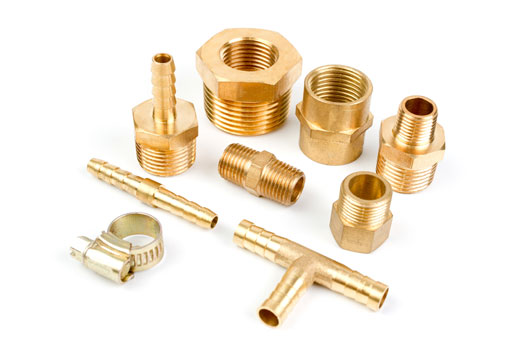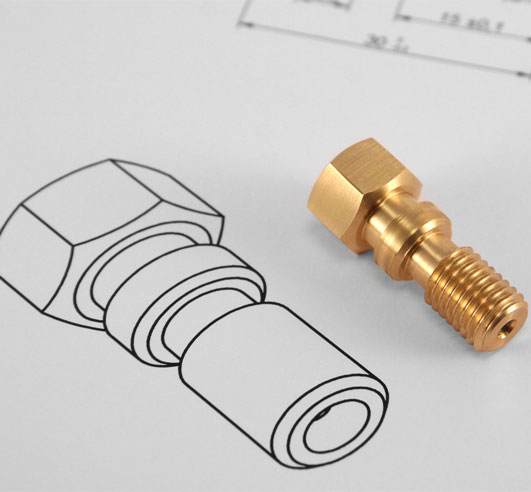The manufacturing world is constantly evolving, driven by advances in technology and the demand for more efficient production processes. One of these technological breakthroughs, CNC (Computer Numerical Control) machines, has significantly altered the manufacturing landscape. After swiftly becoming a vital tool in many industries, the market for these innovative machines is expanding at a rapid pace.
In this blog post, we will delve into the world of CNC machines and explore how this cutting-edge technology is revolutionizing the manufacturing industry. Offering a glimpse into their unique features and capabilities, we'll uncover why modern CNC machines are invaluable assets to businesses seeking to dominate their markets.
The Art of Precision: What are CNC Machines?
CNC machines are computer-controlled machine tools capable of performing multiple operations with remarkable precision and speed. Using sophisticated software to guide their movements, these machines can effortlessly create complex parts and prototypes from a variety of materials, including metal, plastic, and wood.
First developed in the 1940s, CNC technology gained prominence in the manufacturing sector in the late 20th century. Since then, it has continued to advance exponentially - transforming from rudimentary versions to highly advanced, multipurpose machines.
The Key Benefits of Incorporating CNC Machines into Your Business
The versatility and efficiency of CNC machines have led them to become indispensable components for manufacturers worldwide. Let us examine the core advantages that CNC technology offers:
1. Improved accuracy and consistency: CNC machines excel at producing high-quality components with minimal errors. By automating the manufacturing process, companies can ensure consistent output and maintain stringent quality standards.
2. Reduced production times: CNC machines operate at incredible speeds, cutting down production times compared to traditional, manual methods. By streamlining operations, businesses can significantly boost productivity and shorten lead times.
3. Lower manufacturing costs: As CNC machines can perform multiple tasks simultaneously, manufacturers can achieve economies of scale by investing in these versatile workhorses. In addition, reduced waste and fewer mistakes lead to cost savings that bolster the bottom line.
4. Enhanced flexibility: The software-driven nature of CNC machines allows easy reprogramming for crafting new components or making design adjustments. This flexibility allows manufacturers to effortlessly adapt to shifting market demands or accommodate custom orders.
5. Minimized labor requirements: CNC machines have alleviated the need for labor-intensive machining tasks. Requiring minimal human intervention, these automated systems enable businesses to save on labor costs while enjoying a safer, more efficient work environment.
The Major Types of CNC Machines on the Market
CNC machines come in various shapes and sizes, each tailored to cater to specific manufacturing requirements. Broadly, these can be classified into the following categories:
1. CNC milling machines: These machines use rotary cutting tools to remove material from a workpiece. Highly versatile, CNC mills can perform a broad range of operations, from simple cuts to intricate, three-dimensional shapes.
2. CNC turning machines: Also known as lathes, CNC turning machines rotate a workpiece against a cutting tool to create cylindrical parts. Coupled with advanced software capabilities, modern lathes can produce highly intricate designs.
3. CNC plasma cutters: These machines utilize a high-velocity jet of ionized gas to cut through electrically conductive materials, such as metals. CNC plasma cutters offer impressive cutting speed and precision, making them ideal for sheet metal fabrication jobs.
4. CNC lasers: With the ability to focus a high-power laser beam to cut or engrave materials, CNC laser machines are renowned for their unmatched precision and clean cuts.
By assessing their production needs, manufacturers can determine the ideal CNC machines to incorporate into their lineup, unlocking new possibilities in design and efficiency.
The Role of Software in CNC Machines
The software aspect of CNC machines plays a crucial role in their functionality. Two primary software types are used in this context:
1. CAD Software: Computer-Aided Design (CAD) software enables engineers to create detailed, 3D designs for the components to be manufactured. The versatility of CAD software extends the scope of innovation and creativity in product development.
2. CAM Software: Computer-Aided Manufacturing (CAM) software translates the designs created using CAD into G-code, which is the programming language used by CNC machines. CAM software optimizes the machining processes, ensuring that the final product is as close to the original design as possible.
Modern CNC machines rely heavily on sophisticated CAD/CAM integration, offering an interconnected design and manufacturing process that has redefined the art of production.
Significantly streamlining the manufacturing process, CNC machines have quickly become a mainstay across various industries. From automotive to aerospace, these revolutionary systems have transformed even the most complex of production tasks into an efficient, computer-controlled process. As the manufacturing industry continues to evolve, one thing is for sure – machines like these will play an increasingly prominent role in shaping the future of precision engineering and production.
cnc machines sale







